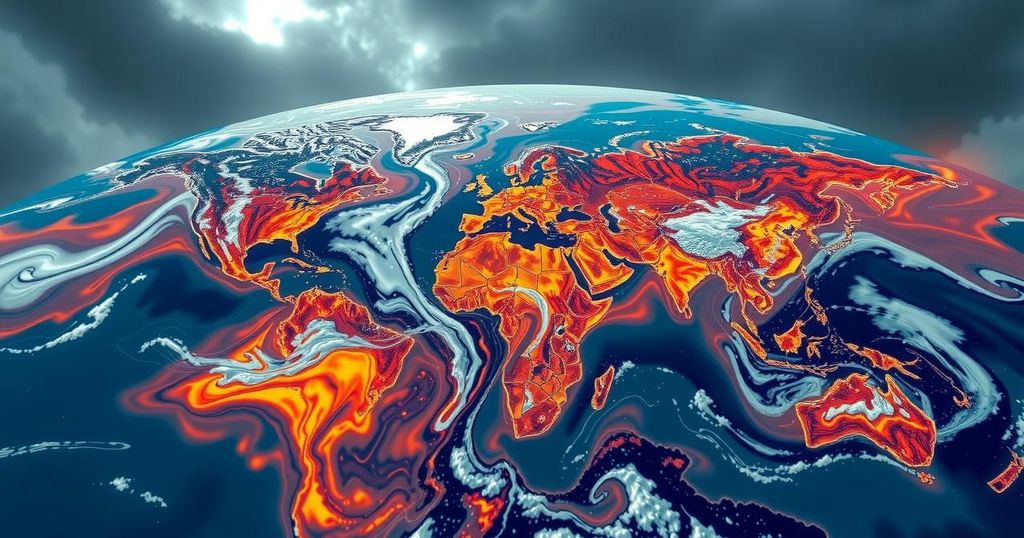Weather
ASIA, AZERBAIJAN, C3, C3S, CLIMATE, CLIMATE CHANGE, COPE, COPERNICUS CLIMATE CHANGE SERVICE, DONALD TRUMP, EU, EUROPE, EUROPEAN, EUROPEAN AGENCY, GLOBAL WARMING, GREENHOUSE GAS EMISSIONS, MILTON, NORTH AMERICA, SAMANTHA BURGESS, SPAIN, UN, UNITED STATES, US, WEATHER, WILDFIRES
Lena Nguyen
0 Comments
2024 Set to be Hottest Year on Record, Breaching 1.5C Warming Milestone
2024 is projected to be the hottest year ever recorded, with global temperatures surpassing a 1.5°C increase over pre-industrial levels, according to EU climate agency Copernicus. This milestone highlights the urgency for enhanced climate action as nations prepare for significant UN negotiations. Recent extreme weather patterns globally point to the dire need for robust climate measures and commitments.
As of 2024, the global climate is projected to reach unprecedented warmth, with predictions indicating a temperature increase surpassing 1.5 degrees Celsius. Copernicus Climate Change Service reported that this year is almost guaranteed to be the hottest on record, signaling a crucial moment ahead of the upcoming UN climate negotiations. The magnitude of recent weather extremes exemplifies the urgent need for more robust climate measures as the world confronts a rising tide of climate-related disasters and a sharp increase in greenhouse gas concentrations. October has already proven to be characterized by severe weather events, including flooding in Spain and Hurricane Milton in the United States, which contributed to the second hottest October on record. The average global temperature for this period was only slightly lower than that of 2023, and projections suggest that 2024 temperatures could exceed 1.55 degrees Celsius above pre-industrial levels. Although this does not constitute a breach of the Paris Agreement, which addresses multi-decadal climate trends, the implications for future climate policy are profound.
The portrayal of climate trends by the European Union’s Copernicus Climate Change Service underscores the significance of 2024 in the context of global warming milestones. Historically, the temperature increase beyond 1.5 degrees Celsius represents a critical threshold identified in climate science as pivotal to averting catastrophic impacts of climate change. The increasing frequency of extreme weather events across the globe serves to emphasize the real-time consequences of this rising temperature, reflecting profound implications for both natural systems and human activities. Moreover, the climate summit scheduled in Azerbaijan is set against the backdrop of political shifts in the United States, particularly the fluctuating commitment to the Paris Agreement, illustrating the complex interplay between politics and climate action. By detailing the growing climate emergencies, including unprecedented rainfall and drought trends across various regions, the urgency for immediate and ambitious climate initiatives is brought to the fore.
In conclusion, the approaching reality of 2024 as the warmest year on record underscores an urgent call to action regarding climate policies and emission reductions. The evidence presented by Copernicus regarding soaring global temperatures and escalating extreme weather events serves as a critical reminder that immediate, collective action is necessary to mitigate the adverse impacts of climate change. The outcomes of the forthcoming UN climate negotiations will likely play a pivotal role in shaping international climate commitments moving forward.
Original Source: www.rfi.fr




Post Comment